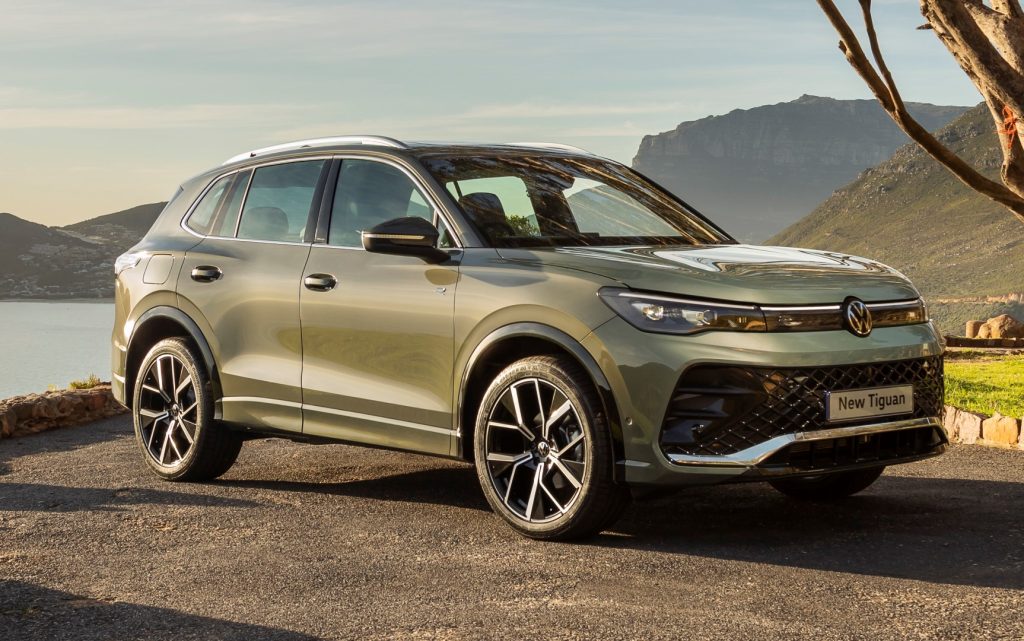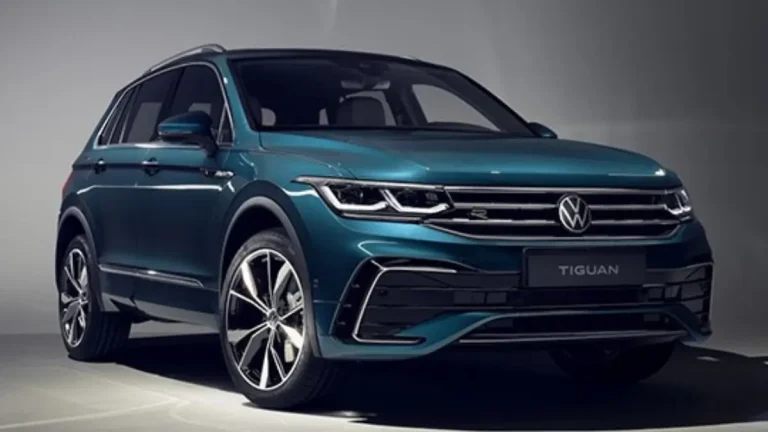South Africans are still reeling from rising living costs, yet high-end SUVs continue to fly out of showrooms. The launch of the revised Volkswagen Tiguan has turned heads in Gauteng, especially among families looking for practicality with premium flair. But one big question hangs in the air: what does it really cost to own one of these sleek German machines in today’s economy?
Thank you for reading this post, don't forget to subscribe!The Price Tag: More Than Just a Number
The new VW Tiguan enters the local market with a price that ranges from R651,500 for the entry-level model to R834,800 for the flagship R-Line. That price bracket puts it in competition with premium rivals from Audi, BMW, and Toyota’s top trims.
This isn’t a casual purchase. It’s a long-term investment that requires serious budgeting. Finance charges, fuel, insurance, and maintenance quickly stack up, turning what looks like a dream SUV into a monthly financial marathon.
What the New Tiguan Brings to the Road
Volkswagen loaded the Tiguan with features to justify the price tag. Engine choices include:
- 1.4-litre turbo petrol: 110kW, 250Nm, 7.6l/100km.
- 2.0-litre turbo diesel: 110kW, 340Nm, 6.6l/100km.
Both engines are paired with VW’s seven-speed dual-clutch automatic gearbox, connected either to front-wheel drive or the brand’s 4Motion all-wheel drive.
The base model already comes well-specced, with 17-inch alloy wheels, Eco-LED headlights, Park Assist Plus, three-zone climate control, and a 12.9-inch infotainment system. Higher trims add massaging Ergo Active seats, 30-colour ambient lighting, and R-Line styling cues that give the cabin a luxury feel.
VW backs each Tiguan with a 3-year/120,000km warranty and a 5-year/90,000km service plan, adding peace of mind for family buyers.

Crunching the Numbers
So, what does it take to park one in your Gauteng driveway? Using standard finance assumptions:
- Price: R651,500 – R834,800
- Term: 60 months (5 years)
- Interest rate: 11.75%
- Deposit: 0%
- Balloon: None
Monthly instalments range between R14,506 for the base model and R18,560 for the R-Line.
Financial planners warn buyers not to commit more than 20% of their gross monthly salary to car payments. By that rule, buyers need to earn:
- At least R72,530 per month for the entry Tiguan.
- Up to R92,800 per month for the R-Line.
That firmly places the Tiguan in the upper-income bracket—sobering news for most South Africans balancing bond repayments, school fees, and groceries.
The Hidden Costs Few Buyers Factor In
Instalments tell only half the story. Ownership also means:
- Insurance: SUVs at this price often cost R3,000–R4,000+ per month to insure.
- Fuel: Even with efficient engines, daily Gauteng commutes can push petrol or diesel costs over R3,500 per month.
- Maintenance: The service plan helps, but tyres (around R4,000 each) and other wear-and-tear parts fall on you.
- Licensing and extras: Annual license fees and optional accessories add more to the tally.
In reality, monthly Tiguan ownership can climb closer to R20,000–R25,000.
Why It Matters
For Gauteng drivers, where distances are long and car culture is strong, the Tiguan’s affordability question isn’t just about prestige. It’s about lifestyle sustainability.
A Johannesburg-based financial planner put it bluntly:
“Cars like the Tiguan are dream purchases, but without a proper budget strategy they quickly turn into financial nightmares. Consumers must plan for insurance hikes, fuel costs, and interest rate changes.”
The bottom line: don’t let a dream SUV cost you your financial peace of mind.
The Tiguan’s Market Position
Despite the steep salary requirements, the Tiguan continues to be a global bestseller for VW. For many Gautengers, it’s a stepping stone into the premium SUV world without crossing into luxury-brand pricing. The balance of comfort, technology, and practicality keeps it on shortlists for professionals, entrepreneurs, and young families.
Your Roadmap to Affording the Tiguan
Thinking about leaping? Here’s how to do it smartly:
- Run the numbers: Use online calculators to simulate repayments with insurance and fuel included.
- Save for a deposit: Even 10–20% upfront will shrink your instalments and reduce interest costs.
- Weigh your options: Compare nearly-new Tiguans or rival SUVs in the same segment for better value.
- Stay realistic: Choose the trim that fits your long-term budget, not just your short-term excitement.
The new Tiguan is an impressive SUV—stylish, safe, and packed with features. But like any major investment, it demands financial discipline. For Gauteng buyers, the best drive is one where confidence at the wheel matches peace of mind in the bank account.




